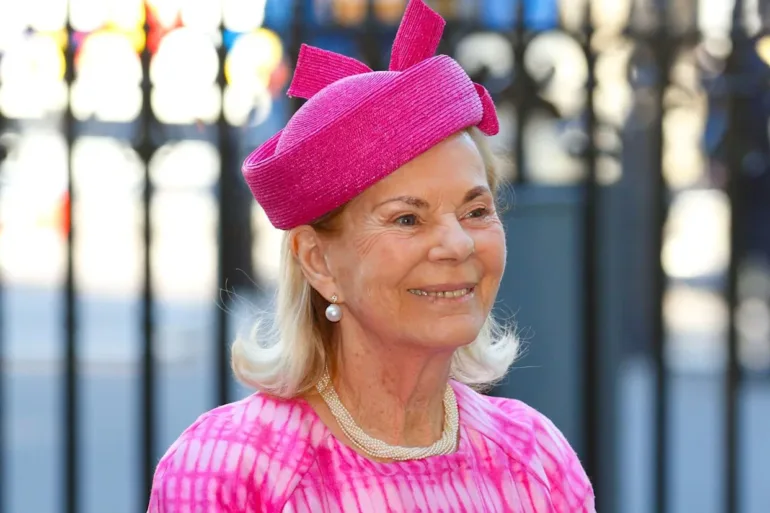Britain’s Duchess of Kent, known for her long-standing association with Wimbledon and her quiet work as a music teacher, has died at the age of 92, Buckingham Palace announced on Friday.
Born Katharine Worsley into an aristocratic family in Yorkshire, northern England, the duchess was a talented pianist, organist, and singer. In 1961, she married Prince Edward, Duke of Kent — a first cousin of the late Queen Elizabeth II — who, at 89, remains a working member of the royal family.
Though the couple led largely separate lives in later years, they never divorced and had three surviving children.
“It is with deep sorrow that Buckingham Palace announces the death of Her Royal Highness The Duchess of Kent,” the royal family said in a statement.
“The King and Queen, and all members of the Royal Family, join the Duke of Kent, his children and grandchildren in mourning their loss and remembering fondly the Duchess’s life-long devotion to the organisations with which she was associated, her passion for music, and her empathy for young people.”
Following the death of Queen Elizabeth II in 2022, the Duchess became the oldest living member of the royal family. She passed away on Thursday evening at Kensington Palace, surrounded by family.
A Royal with a private calling
The Duchess of Kent was widely admired for her grace and modesty. Her decades-long association with the Wimbledon tennis tournament included many memorable moments, most notably in 1993 when she comforted a tearful Jana Novotna after the Czech player’s loss to Steffi Graf in the ladies’ final — a gesture that became symbolic of her warmth and compassion.
She made headlines again in 1994 when she converted to Roman Catholicism, becoming the most senior royal to do so since the 18th century.
In later interviews, she spoke candidly about her struggles with mental health, including severe depression following an abortion necessitated by contracting rubella during pregnancy, and a subsequent stillbirth. Her openness helped destigmatise mental illness among public figures.
After stepping back from royal duties in 2002, the Duchess quietly took up teaching music at a state primary school in Hull. For 13 years, she worked anonymously — with only the headteacher aware of her royal identity.
“There was no publicity about it at all — it just seemed to work,” she told The Daily Telegraph in 2022, reflecting her characteristic humility.
Prime Minister Keir Starmer praised the Duchess as a figure of “compassion, dignity, and a human touch.”
“For many years, she was one of our hardest-working royals, supporting our late Queen Elizabeth II,” he said. “Later, when it was discovered she had been giving her time anonymously as a music teacher in Hull, it seemed typical of her unassuming nature.”
The Archbishop of York, Stephen Cottrell, remembered her as “an advocate for children and young people’s welfare” who had “taught and encouraged generations of young musicians.”
As a mark of respect, the Union Jack flag at Buckingham Palace was lowered to half-mast at midday.
AFP


